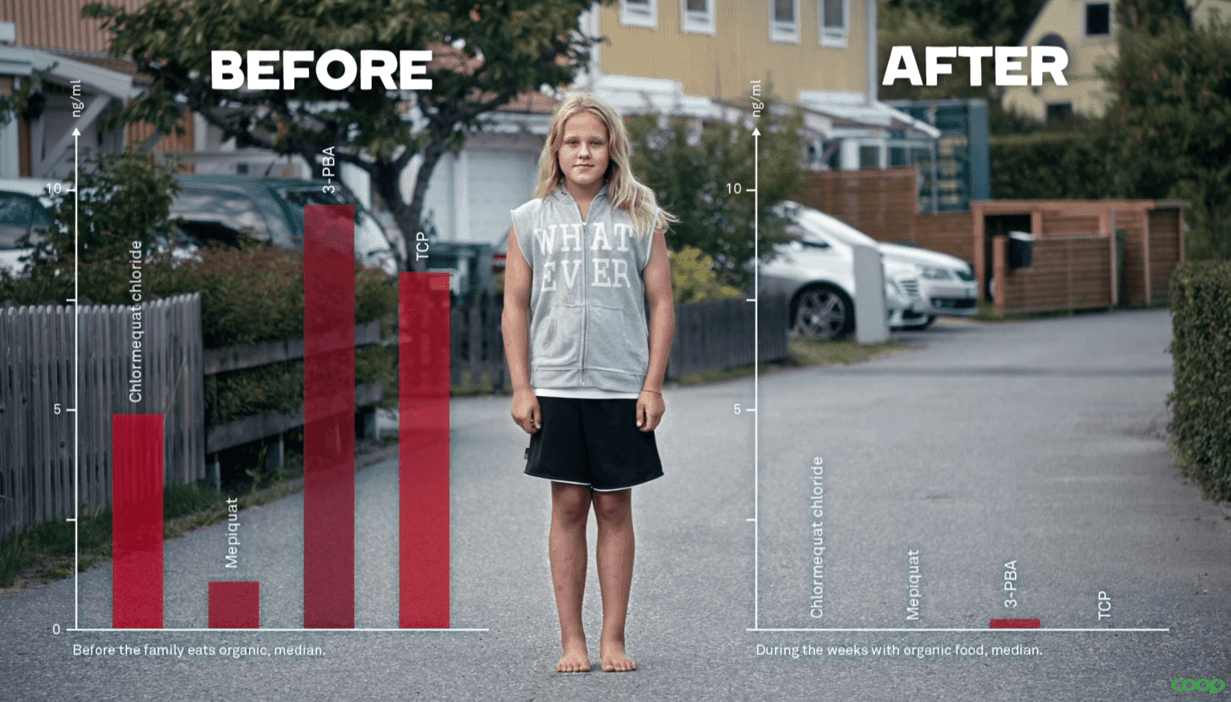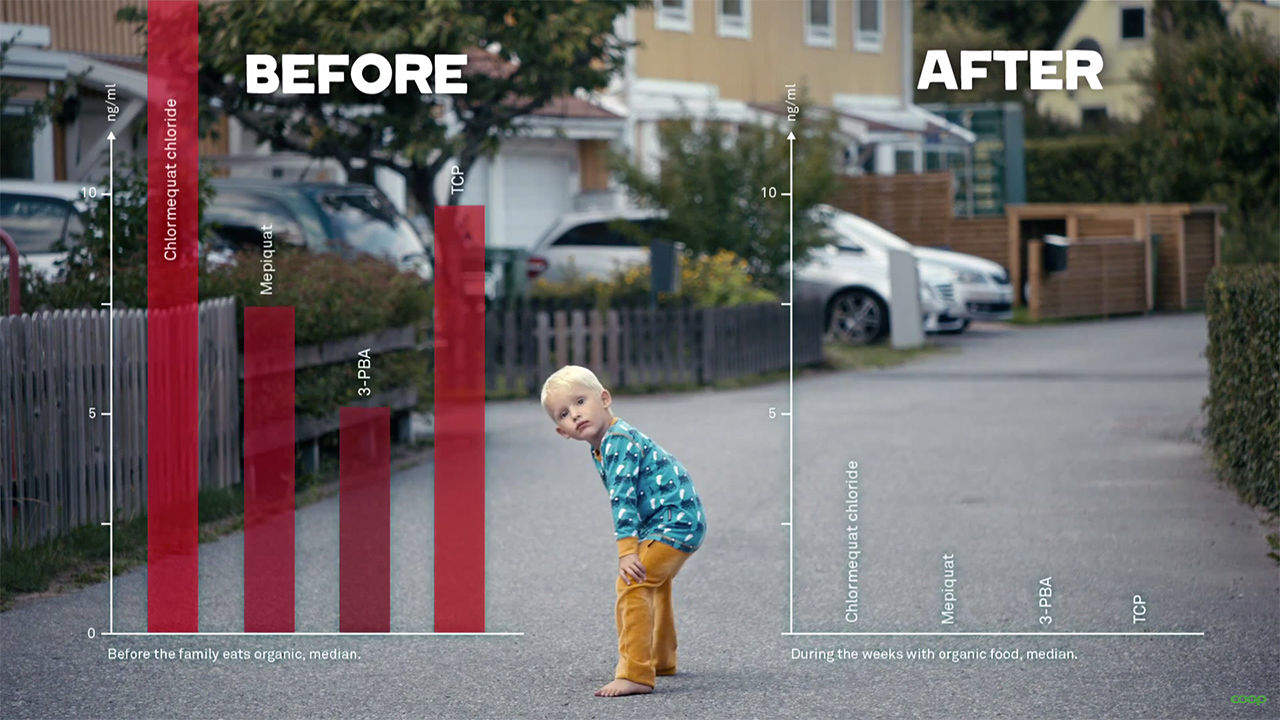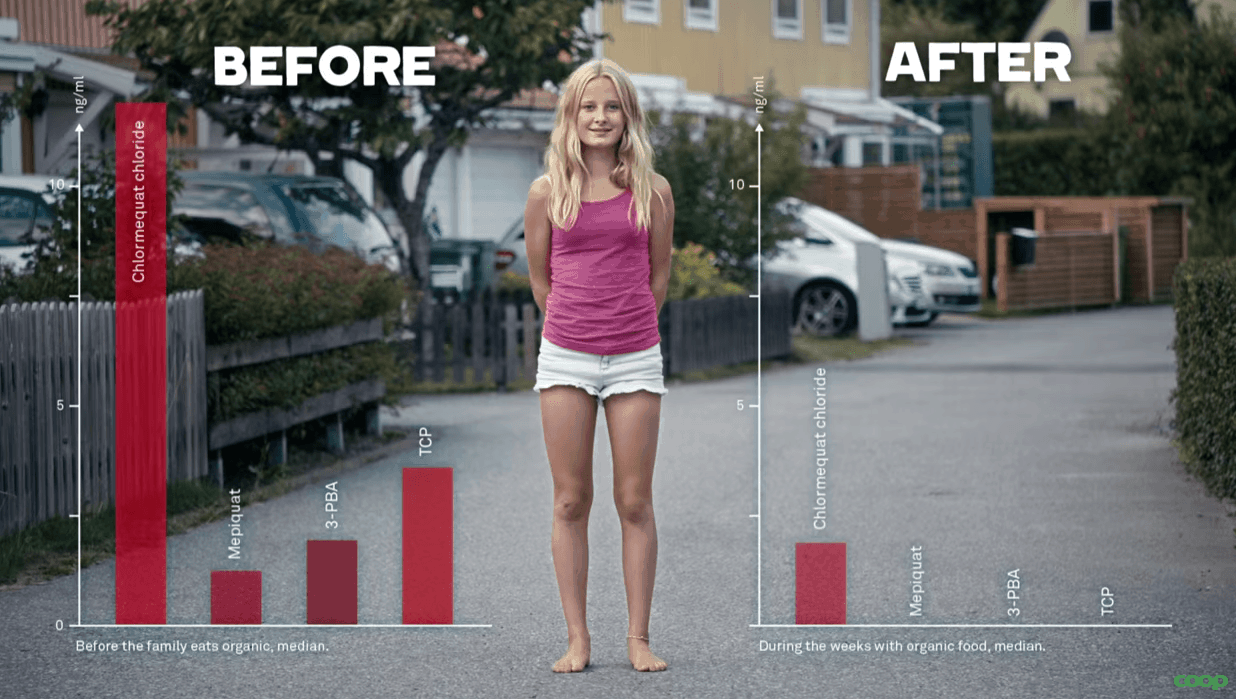An Experiment by Swedish Grocery Chain Coop Has One Family Demonstrate The Difference Eating Organic Makes.
“The organic effect is presented by Coop, a Swedish supermarket chain that promises to do everything it can to support organic farming, and urges others who sell food to do the same.”
As this video shows, Coop had a typical Swedish family participate in a three-week experiment switching from conventional to organic food.
During the first week of the experiment, the five members of the family ate their usual conventional meals and gave urine samples each day. The urine samples were tested independently by the Swedish Environment Research Institute IVL. 12 pesticides were chosen to test and 8 out of the 12 showed up in the family of 5. After one week, the family switched to a 100% organic meal plan for two weeks. New urine samples were then taken and after a few days, the majority of the pesticides were gone. You can see in the pictures below how each child’s exposure to pesticides decreased after eating 100% organic for two weeks.
I’d like to point out that this isn’t the end-all-be-all of organic studies. There were only four pesticides tested and of course the sample size is small with a family of five. But I do believe that it gives you a basic idea of what eating organic can do for you and your family.



The Importance of Eating Organic Whenever Possible
If we had the choice to eat 100% organic all the time, I’m sure 100% of people would.
But what’s stopping people are factors such as price and convenience.
The Shopper’s Guide to Pesticides
Fortunately for all of us, we don’t have to guess which fruits and veggies have more or less pesticides.
The Environmental Working Group (EWG) releases their list every year of the fruits and veggies that have the most pesticides and which ones have the fewest.
So next time you head to the grocery store, make sure you keep in mind the Dirty Dozen and Clean Fifteen lists to help guide you in choosing the best produce for your family.
Source:
Original article by Fast Company





JOHANNA ALONS
August 11, 2015 , 10:00 pmVERY INTERESTING !